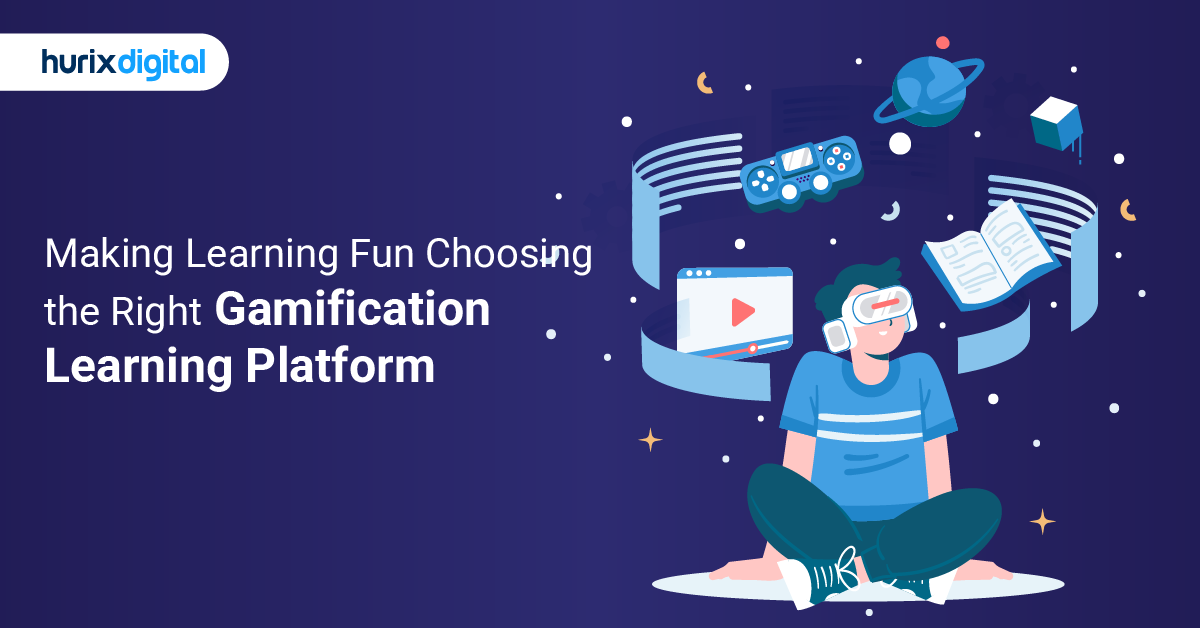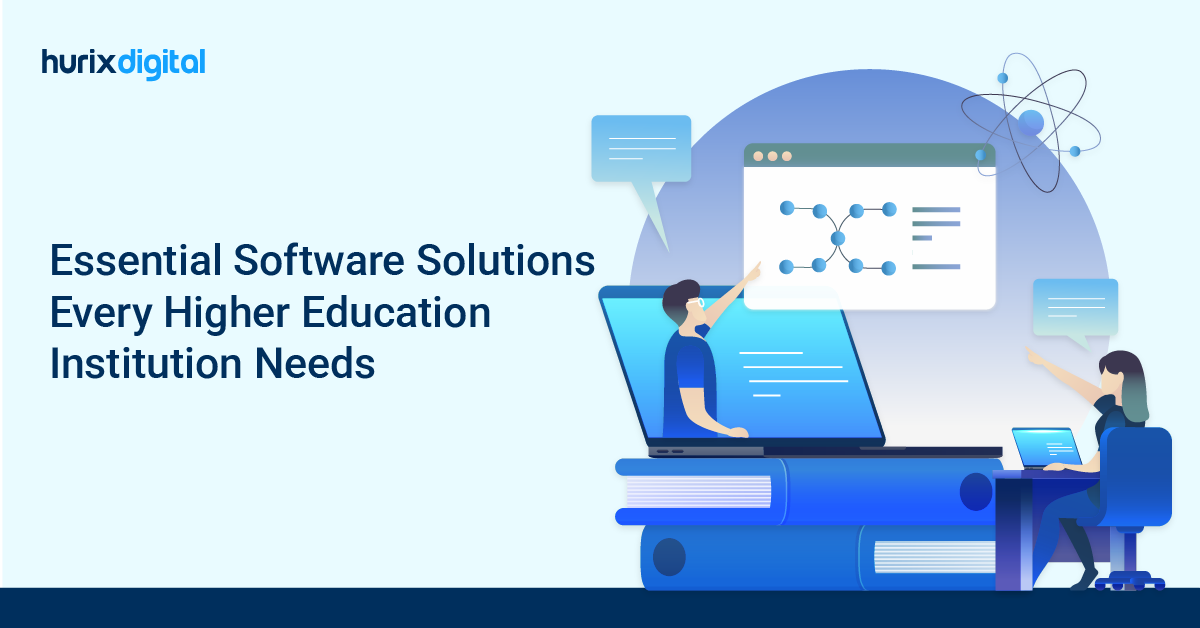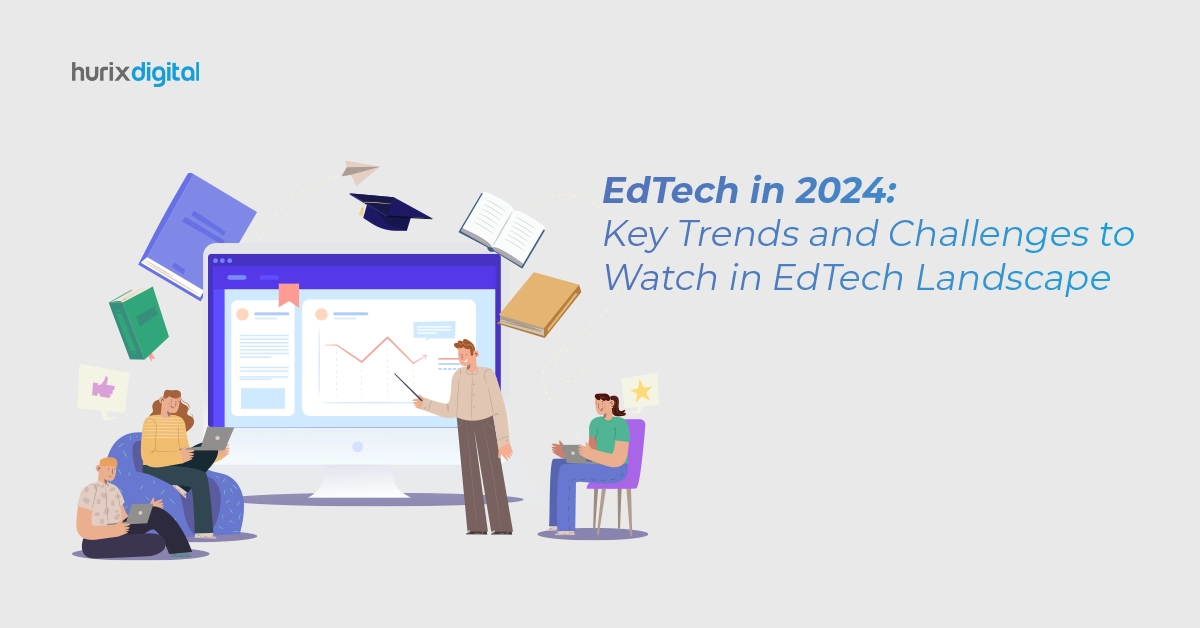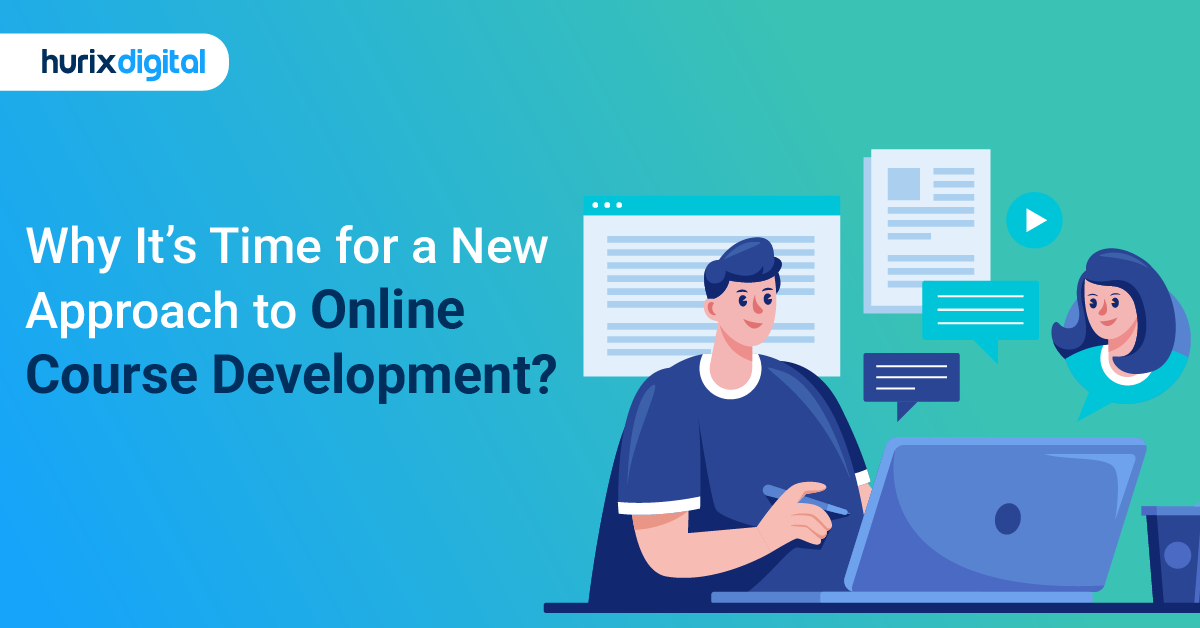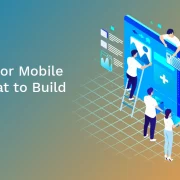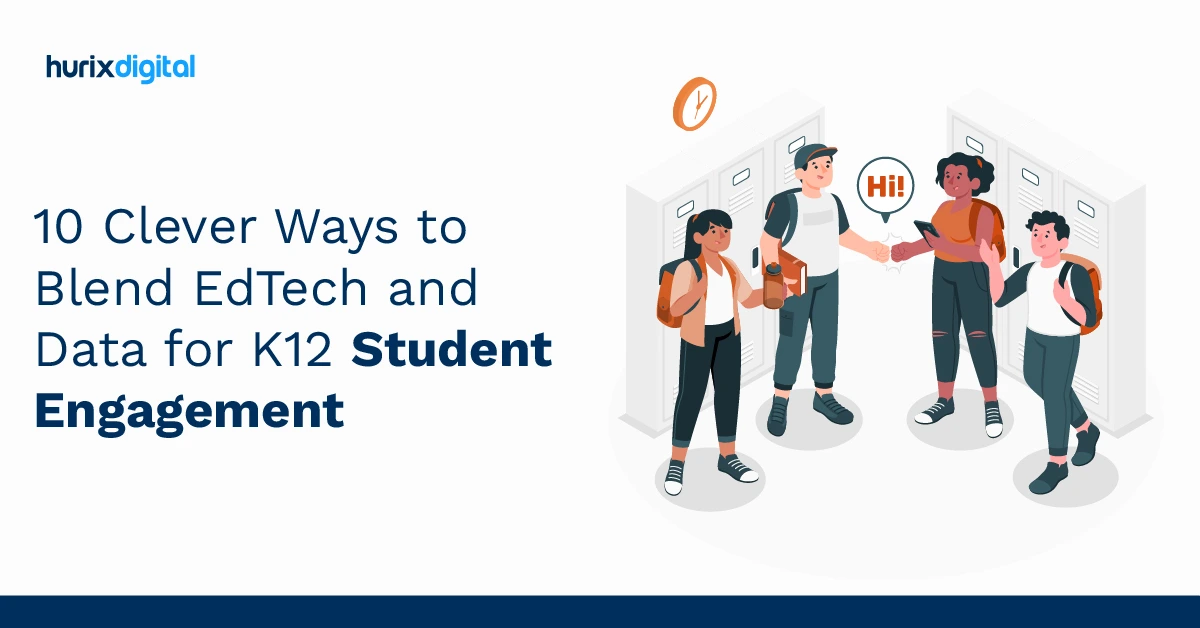
10 Clever Ways to Blend EdTech and Data for K12 Student Engagement
K12 education lays the groundwork for students’ future pursuits, offering them essential skills to navigate the real world. As the realm of education evolves, it becomes imperative to adapt learning methodologies to better support students. One persistent challenge in traditional learning environments is student engagement, which can be addressed by integrating emerging technological solutions.
Blended teaching is fairly new, but up to 82% of students are now choosing hybrid modes of teaching compared to the traditional model. This model is more flexible for learners, giving them the option to go through the learning material at their own pace and expand their productivity.
In this blog, we will explore several data-driven educational technology strategies that help educators boost K12 student engagement. Let’s explore!
Table of Contents:
- Understanding K12 Education
- 10 Ways to Upscale K12 Student Learning with Hybrid Learning Models
- Integrate Mobile Learning
- Flipped Classroom Approach
- Make the Most of Technology
- Personalize Your Teaching Methods
- Use Blended Teaching Tools
- Assess and Reflect
- Develop Curiosity Among Learners
- Digitize Your Revision Methods
- Explore Online Collaborative Project Ideas
- Set Virtual Class Meetings for Discussions
- Exploring the Future of K12 Education
- Final Words
Understanding K12 Education
The education of K12 students affects retention rates, academic performance, and overall educational results. Traditional teaching methods often fail to recognize and meet students’ varied needs and interests, lowering learning outcomes and causing student disengagement.
To resolve this growing issue and better support students, educators are more frequently using data-driven EdTech solutions to encourage student engagement and refine learning approaches for more specialized preferences.
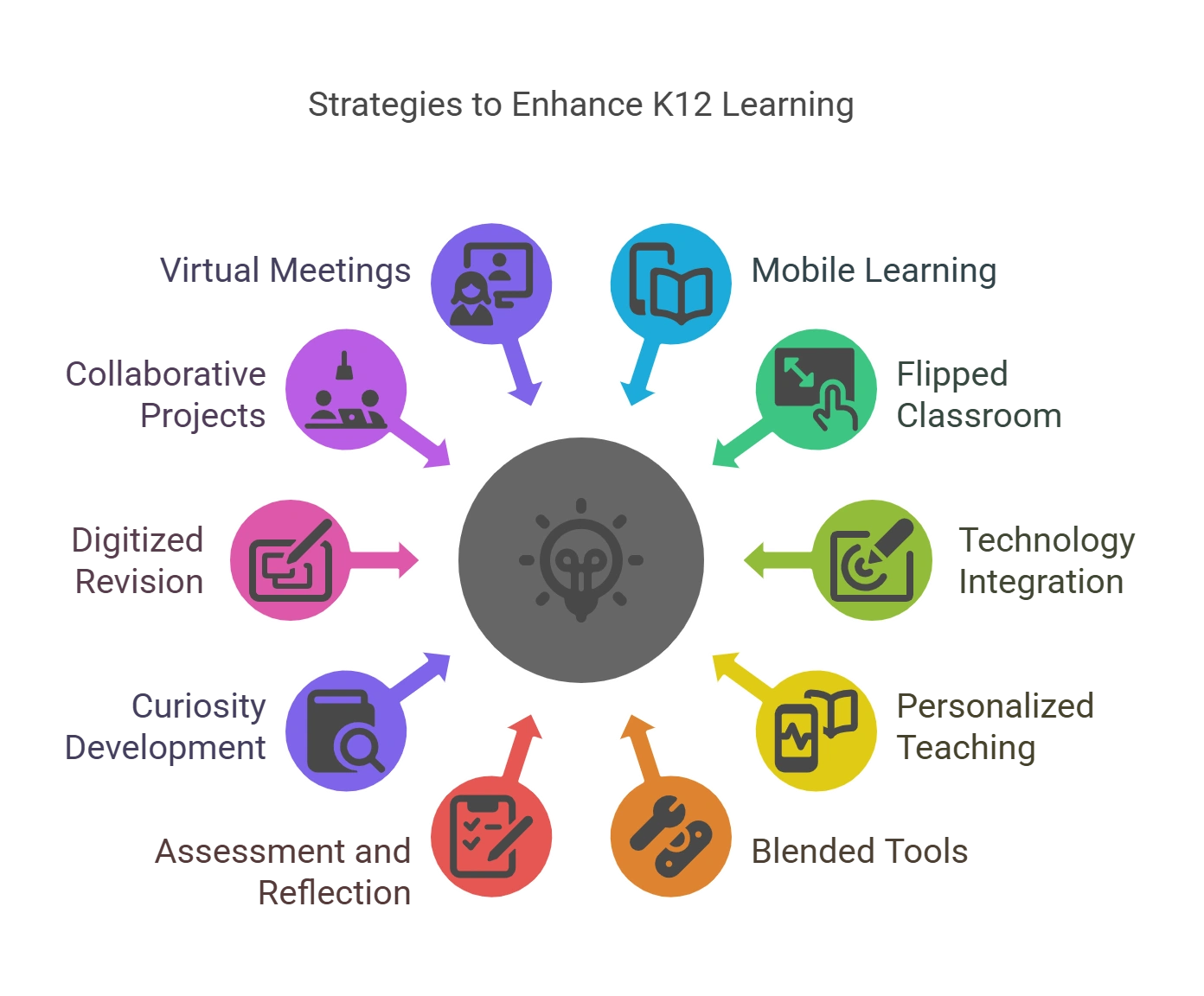
10 Ways to Upscale K12 Student Learning with Hybrid Learning Models
Blended learning is quickly becoming integral in the education sector, and teachers are quick to follow this trend for better K12 student engagement.
Here are ten ways to implement online and offline learning methods for elevated learning:
1. Integrate Mobile Learning
Using mobile devices in the education system can make it easy for students to access and read materials. Several online classroom forums today allow teachers to form classrooms and make online announcements that students can check on their mobile notifications.
Such accessibility can make education easy for students who prefer different media for learning because this model integrates videos, audio clips, quizzes, and forum discussions available on mobiles.
2. Flipped Classroom Approach
Flipped classrooms are the basic building blocks of personalized learning experiences, as they engage students to discuss things better at school. Within this model, students have course material online at home, providing them with the context of the lesson.
After this, the students can have further discussions and understand the deeper meaning of the lessons in the classroom. The flipped classroom model implements both online and offline learning and maximizes the quality of the knowledge that students inculcate.
3. Make the Most of Technology
According to a study, 59% of students learn well with the help of technology, with or without school provisions. Thus, using technology mindfully can help teachers make the most of the different streams of education. With careful strategizing, teachers can determine how big or small a role technology will play in their course outline.
Ideally, teachers should use technology seamlessly in education to enhance K12 student engagement. Integrating videos, audio clips, and infographics helps students learn better with visual and auditory aids that make learning easy.
4. Personalize Your Teaching Methods
Approximately 60% of K12 teachers have implemented personalized teaching in their curriculum in the United States. This shows that personalized teaching is one of the strongest pedagogical models that helps institutes use online and offline teaching methods efficiently. This teaching model focuses on using student-specific teaching approaches that use different tools to encourage students to participate more actively in their educational journey.
The use of blended learning strategies, such as recorded lectures, online course materials, and online feedback sharing with students, can help each one with problems and allow them to progress.
5. Use Blended Teaching Tools
Institutes should be careful about the teaching tools and software they use for their students and try to go for modern ones that allow different types of facilities.
The capacity to conduct online meetings with many participants, share materials across various devices, and open modes of online communication should be some common criteria for a good learning management system (LMS).
Sharing and uploading multimedia files is another strong point teachers should consider when choosing teaching software.
6. Assess and Reflect
With online platforms becoming a part of the education system, assessment becomes easy, as it can take place online. Such personalized learning experiences allow teachers to conduct their assessment process on an online forum, which gives them time to check each student’s progress.
Online course assessment can help teachers track what students retain and track each student’s pain points to help them rectify and learn from their mistakes.
7. Develop Curiosity Among Learners
Students only retain lessons if they are interested in the curriculum. Blended learning opens up several types of learning tools for students, which increases their curiosity and helps them learn new things.
For example, if teachers use some online videos in the course they are teaching, chances are students will learn new things and go beyond the coursework. It also instills healthy curiosity amongst the students, and they ask questions to the teachers and become more active in the learning process.
8. Digitize Your Revision Methods
Students often retain things better when they are discussed in class. However, a large chunk of the population is made up of visual learners. Technology in K12 education can help blend the two, with in-depth discussions happening in class and revision taking place online.
Teachers can upload material online for students to revise after the lesson is taught in class. This allows for flexibility in learning whenever students want and to go back to portions they cannot understand.
9. Explore Online Collaborative Project Ideas
Peer projects can often be intimidating for students, but if they take place online, participation rates increase, and communication between peers improves.
Online collaboration allows participants to indulge in fun activities like online educational games, quizzes, and forums, where they can discuss topics without feeling the pressure and anxiety that come with offline communication. Additionally, having online communication first can open up the chances of having better and more free offline communication.
10. Set Virtual Class Meetings for Discussions
Students may sometimes encounter issues that require instant attention, and online meetings are great for addressing these issues.
Virtual meetings are great for K12 student engagement because they allow students to voice their problems from their homes, giving them a sense of comfort and alleviating the pressure of all the attention being on them while they are confused about their lesson.
Around 75.63 % of students agree that materials shared during online meetings are varied and helpful. This shows how these meetings can often lead to intense discussions that students can continue in the classroom setting later, opening up new opportunities for learning.
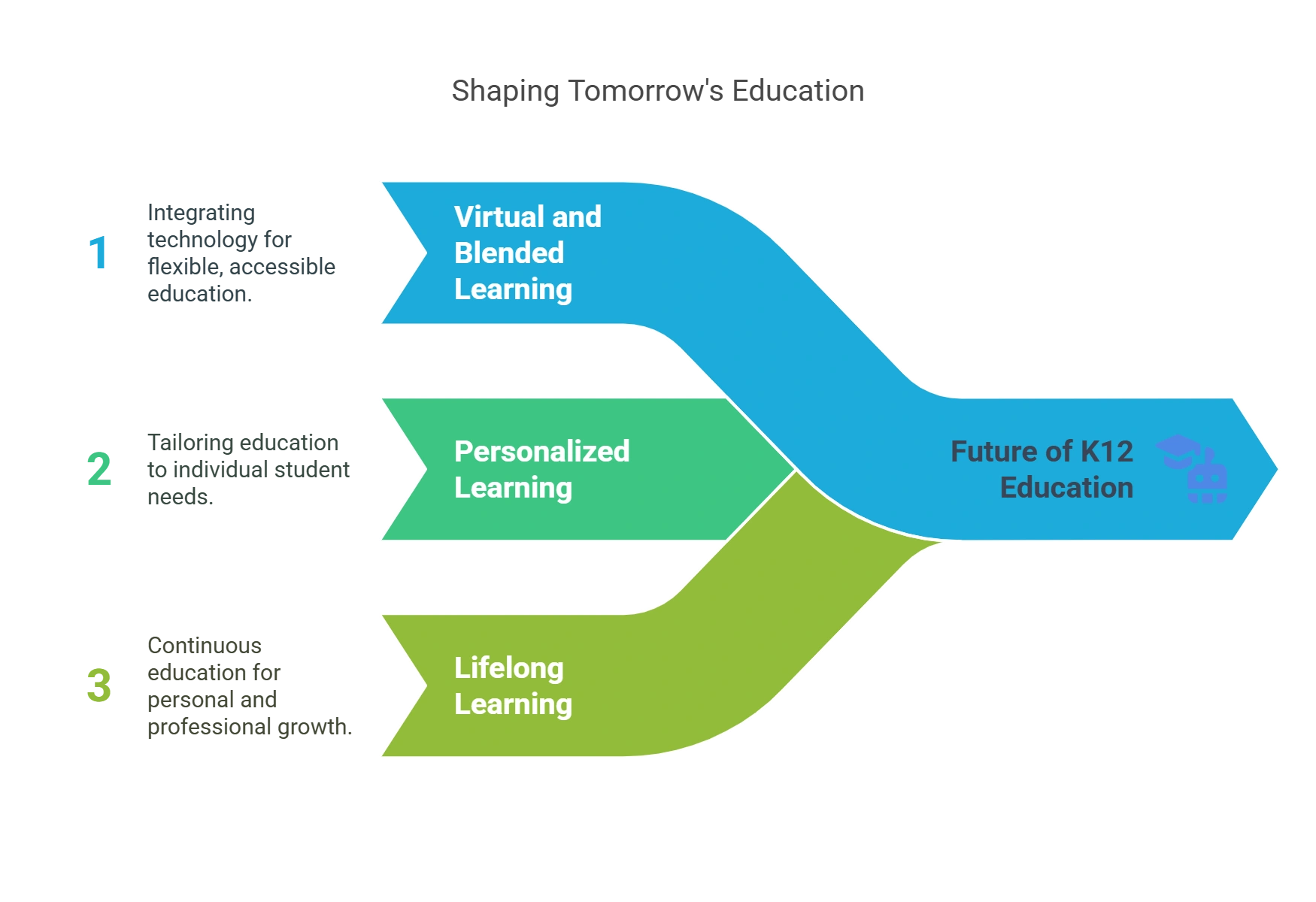
Exploring the Future of K12 Education
The fusion of data-driven strategies and digital innovation holds great promise for transforming education and providing more opportunities to improve student performance, equity, and participation.
Here’s what the future holds:
1. Virtual and Blended Learning
Beyond the limitations of conventional classrooms, digital learning platforms and internet resources have created virtual and blended learning environments.
Hybrid models of instruction combine in-person teaching with virtual learning to provide students with more flexibility, self-governance, and customized access to educational materials. Students can take charge of their education in virtual and hybrid learning settings, which encourage independent study, teamwork, and innovation.
2. Personalized and Adaptive Learning Pathways
Personalized and adaptive learning encourages students to learn at their speed and according to their interests.
By utilizing intelligent tutoring systems, personalized learning algorithms, and adaptive learning platforms, educators can customize training to each student’s unique needs, leading to increased engagement, proficiency, and retention.
Teachers can diversify instruction and offer focused support based on real-time performance data. To satisfy students’ changing demands in the digital era, educators must adopt data-driven techniques and teaching approaches, as the need for individualized learning only grows.
3. Lifelong Learning and Professional Development
It is now essential for K12 students to have lifelong learning abilities to succeed in the 21st century.
Teachers are essential in creating a culture of lifelong learning because they provide an example of inquiry, flexibility, and resilience. Continuous professional development programs enable educators to remain current with the newest developments and teaching methods in data-driven instruction and educational technology.
By prioritizing lifelong learning, educators can give themselves the information, abilities, and attitudes necessary to successfully negotiate the challenges of the digital age and motivate the following generation.
Final Words
In a time of swift technological progress and changing educational models, data-driven educational technology strategies present revolutionary ways to increase K12 student engagement.
In this regard, educators can utilize the power of student performance analytics, personalized learning, and adaptive learning platforms to create dynamic and immersive learning experiences.
The combination of data-driven tactics and educational technology offers a viable opportunity to transform K12 education and open up new avenues for student involvement, academic success, and lifetime learning.
Hurix Digital‘s K12 content solutions provide schools with the technology and platform to create holistic learning experiences and ultimately improve K12 student engagement.
Team up with us to empower your students with cutting-edge educational technology and data-driven strategies.

Senior Vice President
A Business Development professional with >20 years of experience with strong capability to sell new solutions and develop new markets from scratch. New Market Entry Specialist with experience working in the largest emerging markets. Exceptional experience in conceptualizing, ideating and selling new learning technologies like VR AR, etc. across multiple industry verticals.

